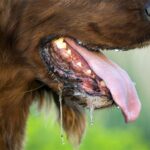Will Dogs Eat Mothballs
Dogs and Mothballs: A Dangerous Combination?
Many people use mothballs to protect their clothes and other belongings from pesky moths. These small, white balls contain a chemical called naphthalene or paradichlorobenzene, which repels moths and other insects by releasing a toxic vapor that interferes with their nervous system. However, while mothballs may be effective against moths, they can also pose a serious risk to dogs if ingested. In this article, we will explore the question of whether dogs will eat mothballs, why it is dangerous, and what you can do to prevent it.
Do Dogs Like the Smell of Mothballs?
One of the reasons why dogs may eat mothballs is that they are attracted to their smell. Mothballs have a strong odor that some dogs find appealing or intriguing, especially if they have a keen sense of smell. Dogs also like to chew on things that are interesting or fun to them, such as toys, bones, sticks, or shoes. Mothballs may seem like a new and exciting item for a curious dog to investigate or chew on.
However, just because a dog likes the smell of mothballs does not mean that they should eat them. Mothballs are not food or treats for dogs; they are poisonous and potentially lethal if ingested in large amounts. Even small amounts of mothballs can cause serious health problems for dogs, including vomiting, diarrhea, abdominal pain, lethargy, tremors, seizures, anemia, liver damage, kidney failure, coma, or death.
Why Are Mothballs Toxic to Dogs?
The main ingredient in mothballs is either naphthalene or paradichlorobenzene (PDCB), both of which are highly toxic chemicals that can harm animals and humans alike. Naphthalene is more toxic than PDCB and has a distinctive odor that is more appealing to dogs. PDCB has a milder scent but can still be dangerous if ingested in large amounts. Both chemicals work by releasing a gas that can irritate the eyes, nose, throat, and lungs of animals and cause damage to their organs and tissues.
When a dog eats mothballs, they may experience various symptoms depending on the amount consumed, the size and age of the dog, and the time elapsed since ingestion. Initially, a dog may vomit or drool excessively as their body tries to expel the toxin. Then, the dog may become lethargic or agitated as the toxin affects their nervous system. In severe cases, a dog may develop tremors, seizures, or paralysis as the toxin damages their brain and spinal cord. The toxic effects of mothballs can also affect a dog’s blood cells and organs over time, leading to anemia, liver damage, kidney failure, or death.
How Can You Prevent Your Dog from Eating Mothballs?
The best way to protect your dog from mothball toxicity is to avoid using them altogether. There are many alternative methods to control moths and other insects that are safer for dogs and humans. For example, you can use natural repellents such as lavender sachets, cedar chips, or citrus peels to deter moths from your clothes or drawers. You can also clean your clothes regularly and store them in airtight containers or bags to prevent moths from laying eggs on them.
If you have already used mothballs and want to dispose of them safely, do not throw them in the trash or flush them down the toilet. Mothballs are considered hazardous waste and should be taken to a designated collection site or recycling center that accepts them. Contact your local waste management agency or health department for information on how to dispose of mothballs properly.
If you suspect that your dog has eaten any mothballs or other toxic substances, do not wait for symptoms to appear. Contact your veterinarian immediately and provide them with as much information as possible about the type and amount of toxin ingested. Your vet may recommend inducing vomiting, administering activated charcoal, or providing supportive care such as IV fluids or oxygen therapy. The sooner you seek professional help, the better the chances of saving your dog’s life.
Conclusion
In summary, dogs should not eat mothballs because they are toxic and potentially lethal. Mothballs contain chemicals that can harm a dog’s health and organs if ingested in any amount. Dogs may be attracted to the smell of mothballs but should not be allowed to chew on them or play with them. If you want to protect your clothes from moths, use safer alternatives such as natural repellents or store them properly. If you suspect that your dog has eaten any mothballs or other toxins, seek veterinary help immediately. Remember that prevention is always better than cure when it comes to your dog’s health and safety.



